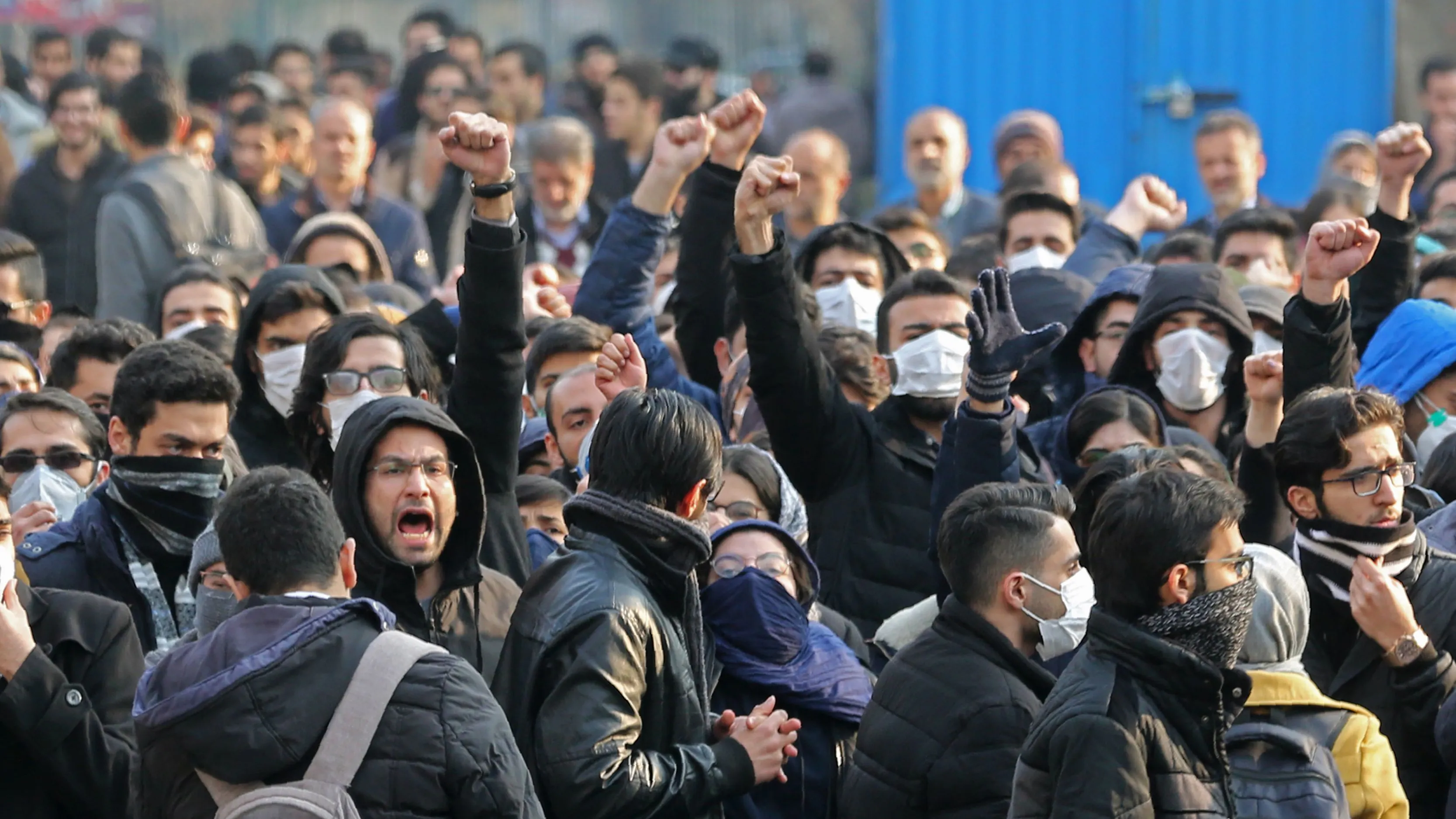A new report from The New York Times highlights how President Donald Trump’s economic sanctions against the Islamic Republic of Iran have devastated the country and have allowed the U.S. to become even more aggressive toward the terror-sponsoring state because it is afraid of any additional fallout from continued escalation.
The New York Times reported Monday:
Iran is caught in a wretched economic crisis. Jobs are scarce. Prices for food and other necessities are skyrocketing. The economy is rapidly shrinking. Iranians are increasingly disgusted.
Crippling sanctions imposed by the Trump administration have severed Iran’s access to international markets, decimating the economy, which is now contracting at an alarming 9.5 percent annual rate, the International Monetary Fund estimated. Oil exports were effectively zero in December, according to Oxford Economics, as the sanctions have prevented sales, even though smugglers have transported unknown volumes.
On Tuesday, European countries triggered a dispute mechanism against Iran, which is producing enough enriched uranium to build one nuclear bomb by the end of the year, for violating the Iran nuclear deal.
The Foreign Ministers of France, Germany, and the United Kingdom said in a joint statement on Tuesday:
Following Iran’s announcement in May 2019 that it would cease meeting some of its commitments under the JCPoA, we have sought to persuade Iran to change course. The E3 have worked hard to address Iran’s concerns and bring it back into compliance with its commitments under the nuclear agreement. We have also undertaken and supported diplomatic efforts, such as France’s initiative, to deescalate tensions and to bring Iran and the US to the negotiating table for a comprehensive negotiated solution. The E3 remain fully committed to this diplomatic effort and intend to resume it as soon as conditions allow.
However, in the meantime Iran has continued to break key restrictions set out in the JCPoA. Iran’s actions are inconsistent with the provisions of the nuclear agreement and have increasingly severe and non-reversible proliferation implications.
We do not accept the argument that Iran is entitled to reduce compliance with the JCPoA. Contrary to its statements, Iran has never triggered the JCPoA Dispute Resolution Mechanism and has no legal grounds to cease implementing the provisions of the agreement.
We publicly stated our concerns, along with the High Representative of the European Union, on 11 November. At the Joint Commission on 6 December, we made clear to Iran that unless it reversed course, we would have no choice but to take action within the framework of the JCPoA, including through the Dispute Resolution Mechanism.
Instead of reversing course, Iran has chosen to further reduce compliance with the JCPoA and announced on 5 January that “the Islamic Republic of Iran, in the fifth step in reducing its commitments, discards the last key component of its limitations in the JCPOA, which is the ‘limit on the number of centrifuges’”, and that “the Islamic Republic of Iran’s nuclear program no longer faces any operational restrictions”, including on enrichment and enrichment-related matters.
We have therefore been left with no choice, given Iran’s actions, but to register today our concerns that Iran is not meeting its commitments under the JCPoA and to refer this matter to the Joint Commission under the Dispute Resolution Mechanism, as set out in paragraph 36 of the JCPoA.
As The Times noted, the fact that conditions are deteriorating so rapidly in Iran means that its government is concerned about continued protests, which seem to become more problematic for the regime every time they break out.
As a result, “the bleak economy appears to be tempering the willingness of Iran to escalate hostilities with the United States, its leaders cognizant that war could profoundly worsen national fortunes,” The Times added. “In recent months, public anger over joblessness, economic anxiety and corruption has emerged as a potentially existential threat to Iran’s hard-line regime.”
The Trump administration launched new sanctions against Iran last week after the world’s leading state sponsor of terrorism launched missile attacks against U.S. forces stationed in Iraq. The sanctions were announced on Friday by Treasury Secretary Steven Mnuchin and Secretary of State Mike Pompeo during a press briefing at the White House.
“First, the President is issuing an executive order authorizing the imposition of additional sanctions against any individual owning, operating, trading with, or assisting sectors of the Iranian economy, including construction, manufacturing, textiles, and mining,” Mnuchin began. “And let me be clear: These will be both primary and secondary sanctions. The EO also allows us to designate other sectors in the future as Secretary Pompeo and me think is appropriate.”
“Second, we are announcing 17 specific sanctions against Iran’s largest steel and iron manufacturers, three Seychelles-based entities, and a vessel involved in the transfer of products,” Mnuchin said. “As a result of these actions, we will cut off billions of dollars of support to the Iranian regime, and we will continue our enforcement of other entities.”
“Third, we are taking action against eight senior Iranian officials who advanced the regime’s destabilizing activity and were involved in Tuesday’s ballistic missile strike,” Mnuchin concluded. “Today’s sanctions are part of our commitment to stop the Iranian regime’s global terrorist activities. The President has been very clear: We will continue to apply economic sanctions until Iran stops its terrorist activities and commit that it will never have nuclear weapons.”

.png)
.png)

